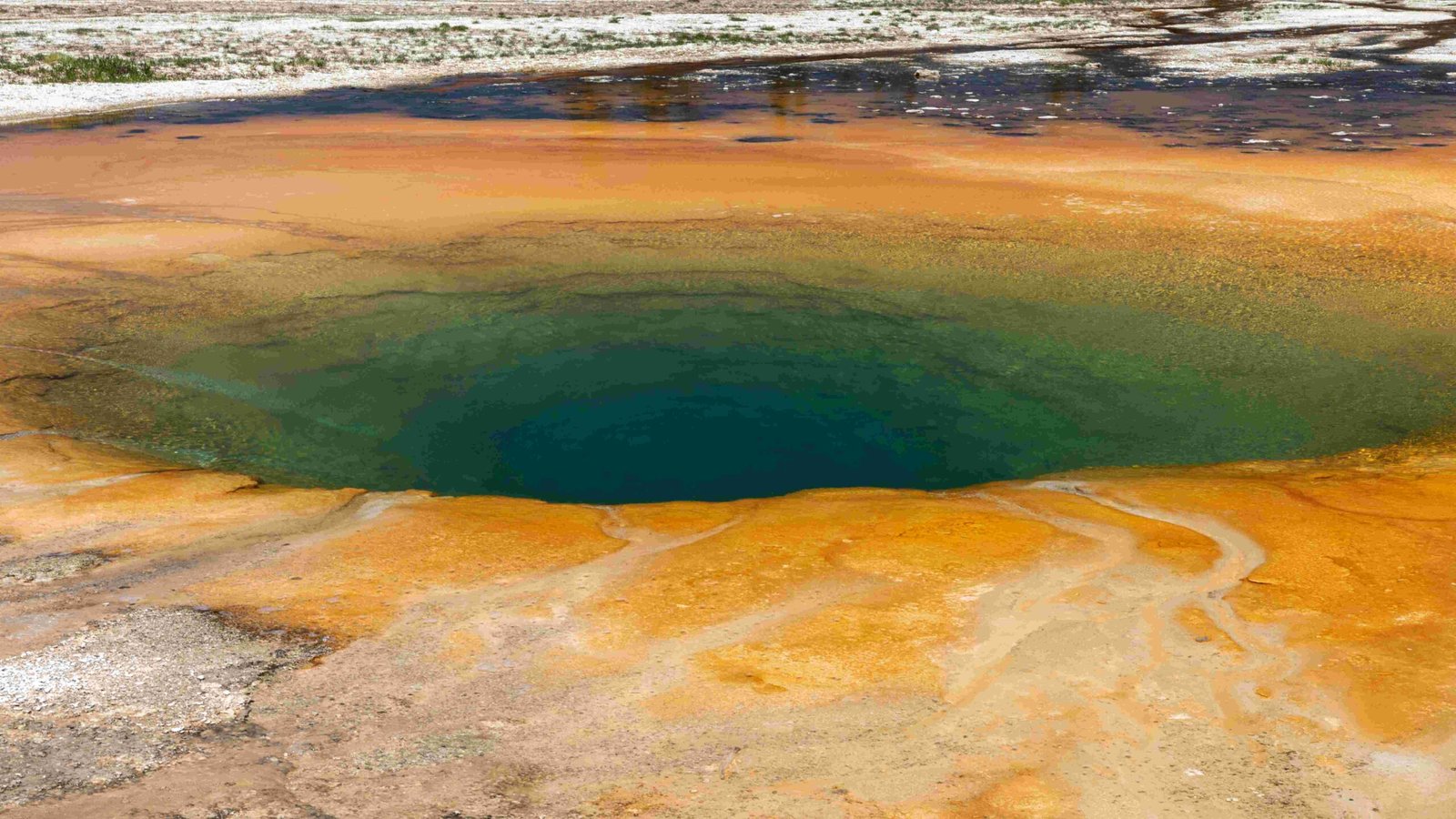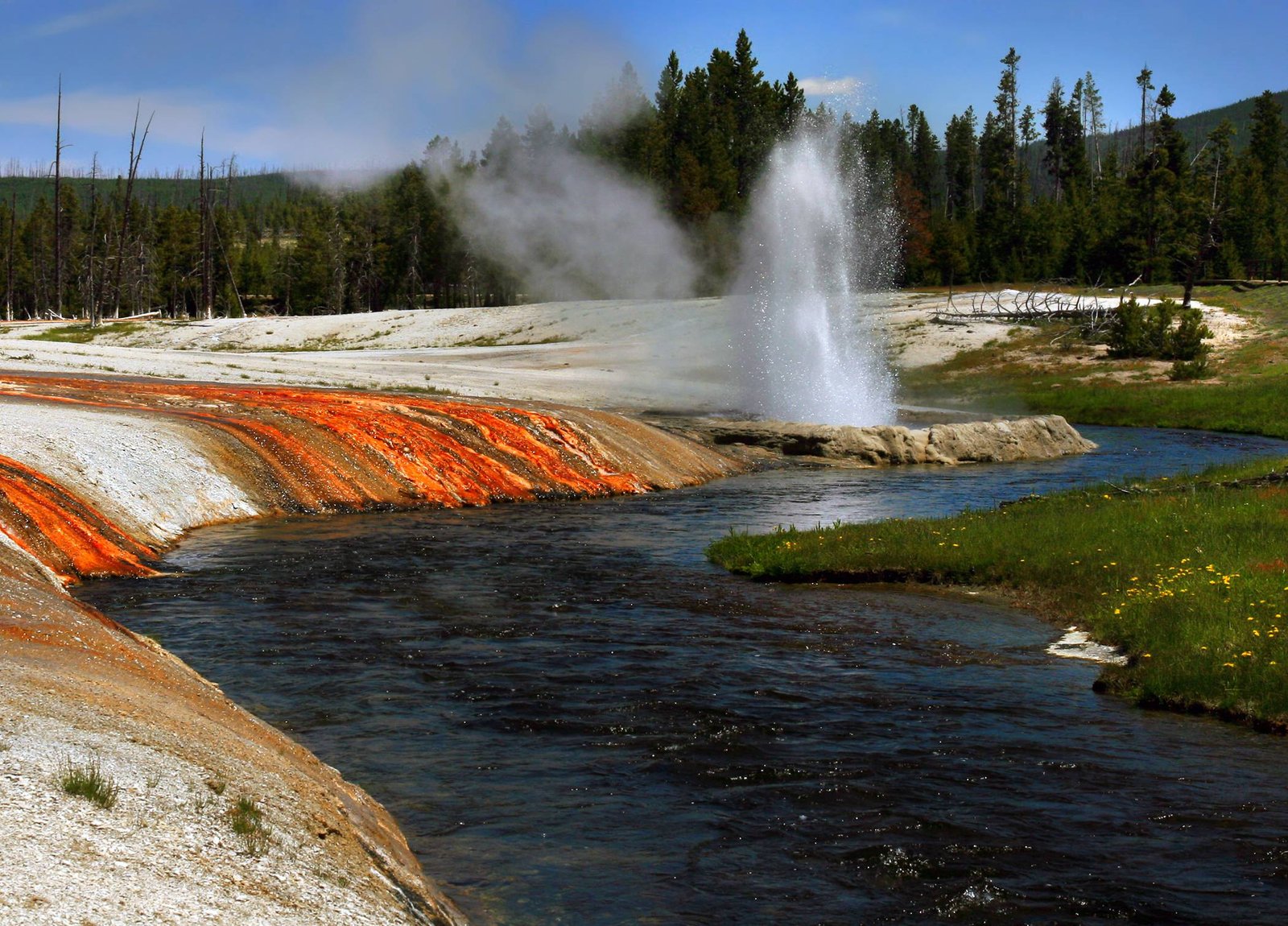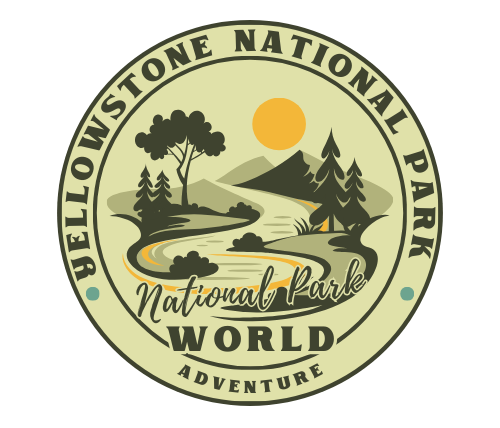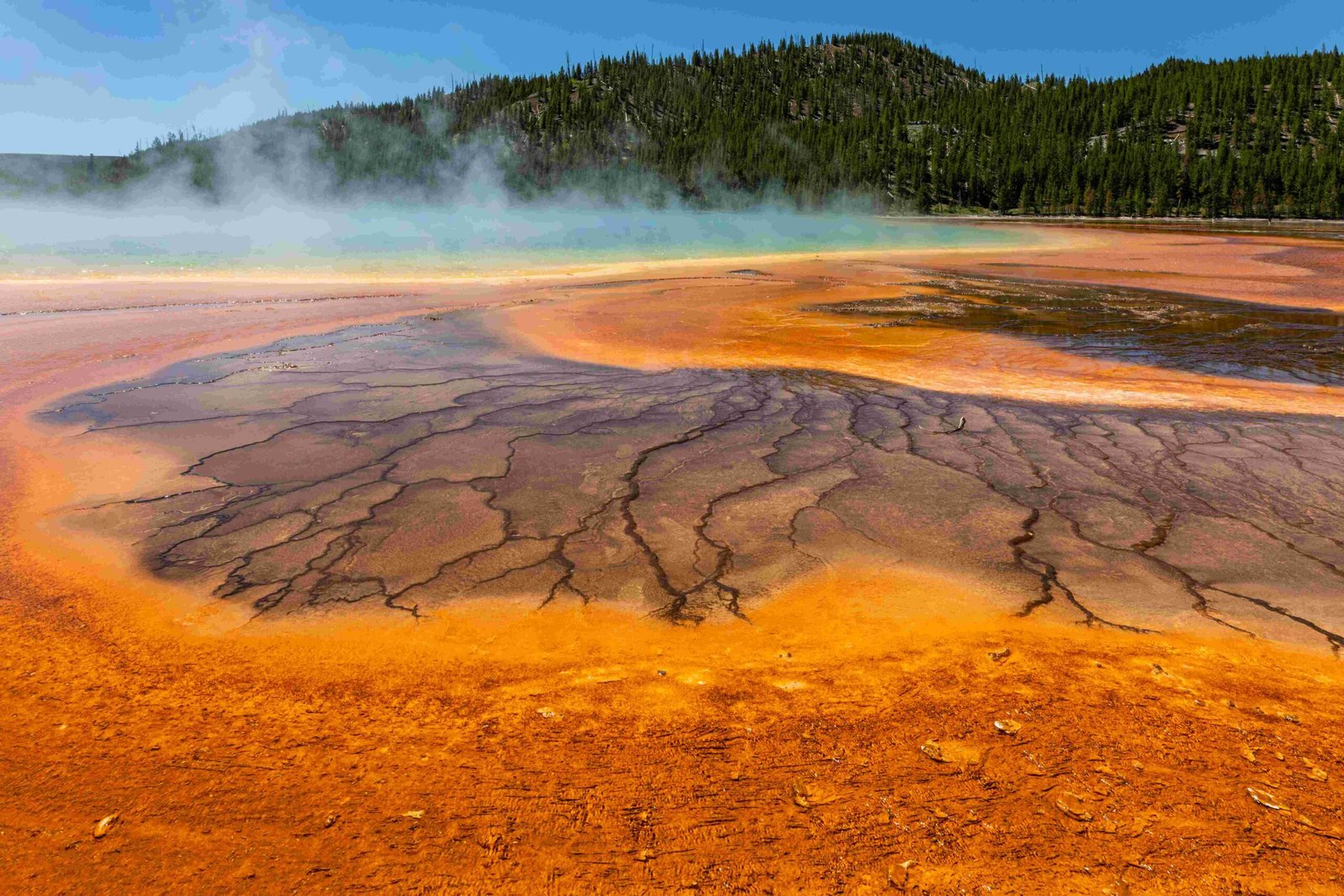Yellowstone National Park is renowned for its stunning waterfalls, geothermal features, and diverse wildlife. While the park doesn’t have specifically documented pink waterfalls, some falls may exhibit a pinkish hue due to mineral content. This guide explores the possibility of pink-hued waterfalls, notable falls in the park, photography tips, and essential visitor information for waterfall enthusiasts.
What Are the Possibilities of Pink Waterfalls in Yellowstone?

While Yellowstone National Park is not specifically known for pink waterfalls, the presence of certain minerals in the water can sometimes create a pinkish or reddish hue. This coloration is often due to:
- Iron oxide deposits
- Thermophilic bacteria
- Algae growth
- Mineral-rich runoff from nearby hot springs
These factors can potentially contribute to a pink tint in some of Yellowstone’s waterfalls, especially during certain times of the day or under specific lighting conditions.
Where Can You Find Notable Waterfalls in Yellowstone?

Although not specifically pink, Yellowstone boasts several impressive waterfalls worth visiting:
- Lower Yellowstone Falls
- Height: 308 feet
- Location: Grand Canyon of the Yellowstone
-
GPS Coordinates: 44.7153° N, 110.4667° W
-
Upper Yellowstone Falls
- Height: 109 feet
- Location: Grand Canyon of the Yellowstone
-
GPS Coordinates: 44.7194° N, 110.4633° W
-
Tower Fall
- Height: 132 feet
- Location: Tower-Roosevelt area
-
GPS Coordinates: 44.8908° N, 110.3872° W
-
Gibbon Falls
- Height: 84 feet
- Location: Gibbon River
-
GPS Coordinates: 44.6847° N, 110.7378° W
-
Mystic Falls
- Height: 70 feet
- Location: Biscuit Basin area
- GPS Coordinates: 44.3667° N, 110.8667° W
What Are the Best Times to Photograph Yellowstone Waterfalls?
To capture the best images of Yellowstone’s waterfalls, consider the following:
- Golden Hour: Early morning or late afternoon for soft, warm light
- Overcast Days: Diffused light reduces harsh shadows and glare
- Spring and Early Summer: Higher water flow due to snowmelt
- Fall: Colorful foliage adds vibrancy to waterfall scenes
How Can You Capture the Best Waterfall Photos in Yellowstone?
Follow these tips to enhance your waterfall photography in Yellowstone:
- Camera Settings:
- Slow shutter speed (1/15 to 2 seconds) for silky water effect
- Low ISO (100-400) for minimal noise
-
Small aperture (f/8 to f/16) for greater depth of field
-
Equipment:
- Tripod for stability during long exposures
- Neutral density filters to control light in bright conditions
-
Wide-angle lens (16-35mm) for expansive scenes
-
Composition Techniques:
- Include foreground elements for depth
- Use leading lines to guide the viewer’s eye
-
Experiment with vertical and horizontal orientations
-
Safety Considerations:
- Stay on designated trails and viewing platforms
- Be aware of slippery surfaces near waterfalls
- Keep a safe distance from waterfall edges
What Facilities Are Available Near Yellowstone’s Waterfalls?
| Waterfall | Parking | Restrooms | Visitor Center | Hiking Trails |
|---|---|---|---|---|
| Lower Yellowstone Falls | Yes | Yes | Yes (Canyon Village) | Yes |
| Upper Yellowstone Falls | Yes | Yes | Yes (Canyon Village) | Yes |
| Tower Fall | Yes | Yes | No | Yes |
| Gibbon Falls | Yes | No | No | No |
| Mystic Falls | Yes | Yes (at Biscuit Basin) | No | Yes |
How Can You Plan Your Yellowstone Waterfall Visit?
- Best Seasons:
- Summer (June to August): Peak tourist season, all roads open
- Spring (May to early June): High water flow, fewer crowds
-
Fall (September to October): Beautiful foliage, moderate crowds
-
Park Entrance Fees:
- Private Vehicle: $35 (valid for 7 days)
- Motorcycle: $30 (valid for 7 days)
-
Individual (on foot or bicycle): $20 (valid for 7 days)
-
Accommodation Options:
- In-park lodges (book well in advance)
- Campgrounds (both reservable and first-come, first-served)
-
Nearby towns like West Yellowstone and Gardiner
-
Safety Tips:
- Stay on boardwalks and designated trails
- Maintain a safe distance from wildlife
- Carry bear spray in backcountry areas
- Be prepared for sudden weather changes
What Are Some Lesser-Known Waterfalls in Yellowstone?
While not pink, these lesser-known waterfalls offer unique experiences:
- Fairy Falls
- Height: 197 feet
- Location: Near Old Faithful area
-
Hike: 5-mile round trip, moderate difficulty
-
Undine Falls
- Height: 60 feet
- Location: Near Mammoth Hot Springs
-
Easily visible from the road
-
Wraith Falls
- Height: 100 feet
- Location: Near Mammoth Hot Springs
-
Short 0.8-mile round trip hike
-
Crystal Falls
- Height: 129 feet
- Location: Grand Canyon of the Yellowstone
- Visible from South Rim Drive
While Yellowstone National Park may not have specifically pink waterfalls, the diverse range of falls and potential for mineral-induced coloration offers a unique experience for waterfall enthusiasts and photographers alike. By following the tips and information provided in this guide, visitors can make the most of their waterfall exploration in this iconic national park.
Reference:
1. National Park Service – Yellowstone
2. Yellowstone National Park Lodges
3. Yellowstone Park Foundation
4. USGS Yellowstone Volcano Observatory

